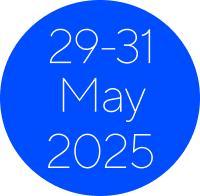Chair: Ilona Fricker (South Africa)
Speakers: Farah Al Dweik (Jordan), Lotta Carlsson (Finland)
- Physiotherapists understand their ethical obligations in identifying and reporting torture and other gross human rights violations in accordance with the Istanbul protocol.
- Identify ways in which physiotherapists can support victims of atrocities including activists and human rights defenders and build capacity in legal professionals involved in justice mechanisms.
-
Explore approaches to building capacity in physiotherapists to provide medico-legal/forensic assessment and documentation to support legal recourse for human rights violations.
Human rights lie at the core of the 2030 SDG Agenda. The Agenda envisages a world of universal respect for human rights and human dignity, where using a human rights-based approach no one is left behind in development progress. If the SDGs are to be more than lofty global goals, it is necessary to have transparent and binding accountability processes and mechanisms in place. How are physiotherapists accountable in delivering on these goals from a human rights perspective?
With the global refugee crisis and ongoing conflict in countries including in Ukraine and in Gaza, physiotherapists around the world are encountering more patients who have experienced human rights abuses as part of war, armed conflict, torture, civic oppression and forced migration. The role of physiotherapists in transitional justice processes is not typically a direct or primary one, however, as frontline workers, physiotherapists may indirectly contribute in several ways.
A) Identification and Reporting: The Istanbul protocol is a set of international guidelines which outlines the effective investigation and documentation of torture and other cruel, inhuman, or degrading treatment or punishment. Health professionals are encouraged as part of their ethical obligations to identify, document and report suspected cases of torture and ill-treatment, but most physiotherapists are not aware of these requirements and need training and guidance to effectively identify victims, document appropriately and report.
B) Reparations: Physiotherapy rehabilitation is a key part of providing reparations to individuals for the harms suffered. Through restoring wellbeing and function, victims become autonomous and empowered to integrate back into their daily lives. Working with activists and human rights defenders is an important part of the work to strengthen civil society and many of them are also survivors of atrocities. Specific approaches are required by physiotherapists which acknowledge the sensitivity of their work, the often unsafe context they remain in and security risks involved.
C) Capacity Building: Trauma-focused physiotherapists have a unique understanding of how trauma affects the body. Providing education and awareness to a range of professionals involved in justice mechanisms supports understanding of the clinical presentations, stories and behaviors of survivors and enables service providers to engage in a trauma-informed and sensitive way.
D) Medico-legal evaluations: For many individuals, rehabilitation is not the end of their healing journey and many want their suffering to contribute to change. Individuals may choose to more formally document their injuries and harms suffered including by taking a medico-legal evaluation. With few qualified forensic doctors worldwide, health professionals have a vital role in global efforts to hold perpetrators of human rights violations accountable. Physiotherapists are well-placed and accessible across contexts to provide comprehensive examination and diagnosis within scope of practice to support in building a portfolio of evidence for survivors to use in a variety of legal situations and for their own purposes of seeking justice. However, physiotherapists need specific training in order to develop the competencies and confidence to undertake this area of work and to ensure their findings are considered credible in front of formal accountability mechanisms.
-
Inga T. Winkler & Carmel Williams (2017) The Sustainable Development Goals and human rights: a critical early review, The International Journal of Human Rights, 21:8, 1023-1028, DOI: 10.1080/13642987.2017.1348695
-
Istanbul Protocol 2022 UNHCR https://doi.org/10.1016/S0140-6736(22)00948-5
-
World Physiotherapy. Policy statement: Torture. London, UK: World Physiotherapy; 2023 https://world.physio/policy/ps-torture
-
Mcgowan, Emer & Beamish, Nicole & Stokes, Emma & Lowe, Rachael. (2020). Core competencies for physiotherapists working with refugees: A scoping review. Physiotherapy. 108. 10.1016/j.physio.2020.04.004.
-
Mandel L, Worm L. Documentation of torture victims. Implementation of medico-legal protocols. Torture. 2007;17(1):18-26. PMID: 17456903
-
Academy of Medical Royal Colleges: Acting as a an expert or professional witness: Guidance for healthcare professionals, May 2019: https://www.aomrc.org.uk/reports-guidance/acting-as-an-expert-or-professional-witness-guidance-for-healthcare-professionals/
-
How to be a medical expert witness BMJ 2015;350:g7856
-
Chartered Society of Physiotherapy: PD106 issuing function Practice and Development date of issue October 2022 ‘Duty to Report’
-
Sigvardsdotter, E., et al., Prevalence of torture and other war-related traumatic events in forced migrants: a systematic review. Journal on Rehabilitation of Torture Victims and Prevention of Torture, 2016. 26(2): p. 41-73.
-
Gueron, L.J.P., et al., Group physiotherapy with survivors of torture in urban and camp settings in Jordan and Kenya. 2021. 30(3): p. 27-42
See the 24 focused symposia to be presented at congress.
Find out who the key speakers at congress will be.
Find out which clinical topics will be covered in these discussion-based seminars.




